1938: Mary Astor in "Listen, Darling", "Paradise for Three", and "There's Always a Woman"
 Thursday, September 3, 2020 at 10:00PM
Thursday, September 3, 2020 at 10:00PM Before each Smackdown, Nick Taylor considers alternates to Oscar's Best Supporting Actress roster...
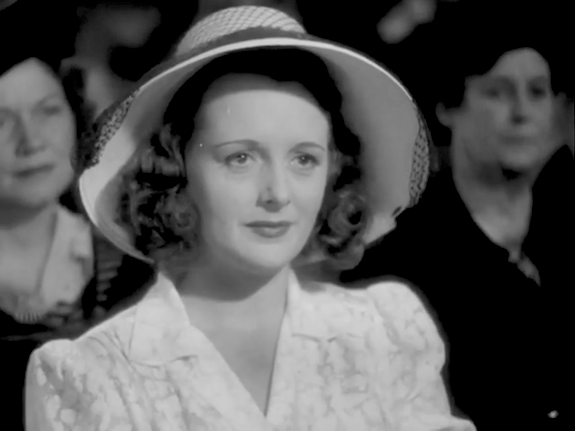
Thank you to everyone who recommended performances from 1938 to look into! And a big thanks, especially, to joel6, whose suggestion inspired today's write-up.
Mary Astor made five movies in 1938. Three of them - Listen, Darling, Paradise for Three, and There’s Always a Woman - are still relatively easy to track down online. One of these missing titles, Woman Against Woman, barely seems to exist anymore. I also couldn’t find No Time to Marry anywhere, which is a shame since it sounds like an actual leading role. But the three titles one can easily find all provide a snapshot of this endlessly talented actress doing her thing across a wide range of genres and archetypes...
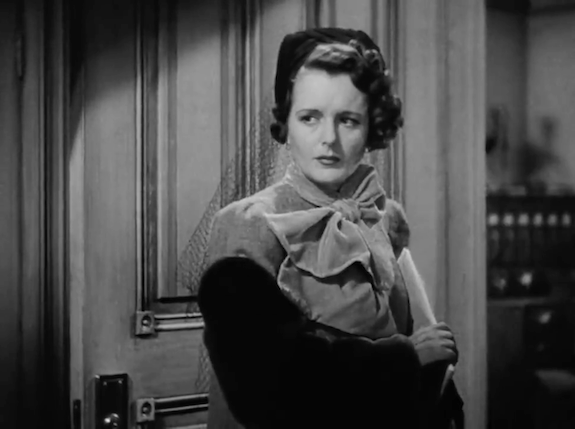
There’s Always a Woman
There’s not much to recommend There’s Always a Woman, which plays like some Columbia producer decided the best way to rival The Thin Man was to make a version where Nick and Nora might actually strangle each other. Here, daffy wife Sally (Joan Blondell) decides to run her churlish husband Bill’s (Melvyn Douglas) detective agency herself after he returns to his old job at the D.A.'s office. Sally is excited when a new client (Mary Astor) hires the agency to trail her husband on fears he’s having an affair. Astor's character couldn’t look more affluently solemn if she’d said her man was plotting to kill her, but the actress holds firm to this tone without being inflexible or dull. She’s a compelling if underutilized presence, projecting a kind of sad fortitude without pointing towards whatever Big Secret her character is inevitably hiding. There’s not a humorous note in her work, but given how ersatz and unpleasant the comedy here usually is, that’s fine.
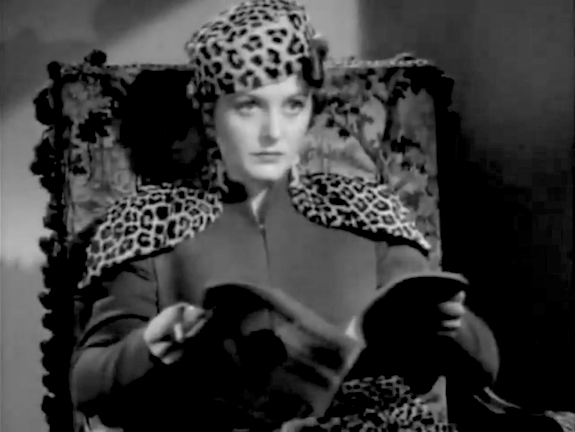
Paradise for Three
Paradise for Three follows two strangers on a luxury two-week vacation in Vienna, a reward for winning a nationwide slogan contest for an esteemed soap company. The first prize winner (Robert Young) is a bright man who’s won 26 similar contests but can’t get a real job, and hopes to use this trip as a networking opportunity. Coming in second is that company's magnate (Frank Morgan), who entered the competition under an alias to prove to himself he can do things besides sit behind a desk and make money. The big boss opts to take the vacation disguised as a poor person to remind himself something about how real people live and what his company is like on the ground floor. Real Undercover Boss stuff. Tragically, just before he sets out on this noble quest, the hotel staff and its long-term patrons discreetly learn that one of the contest winners is a bonafide multi-millionaire, and they vow to uncover which one it is and show him (and only him) a good time.
One such guest is Irene Mallebre (Mary Astor), a divorcé looking for a hot ticket to pay off her mounting bills. She, like the staff, immediately assumes Young is loaded and latches onto him as soon as he arrives. Paradise for Three is the kind of farce that clicks into place once the establishing stuff ends and the story can start in earnest, and Astor is a major reason the film works as well as it does. She underlines Irene’s gold-digging intentions before she meets the men, which saves her from belaboring the duplicity later in the film. As such, we get to see Irene do her very best job of being flirtatiously charming as she bumps into Young in the lobby and slips into his suite while decked out in a luxurious white nightgown. She’s a convincing operator, able to diagram long cons and spontaneous recalibrations with ease - Astor is never better than in a series of close-ups where she realizes she’s been courting the wrong man and instantly re-orients herself to woo Morgan. By refusing to play up Irene's insincerity, Astor leaves open the possibility that she's actually enjoying her time with these guys for reasons beyond their money, and that her ultimate failure to marry Morgan might be crushing on financial and romantic terms. If you’re looking for an ancestor to Maggie Gyllenhaal’s savvy snark in Happy Endings, you could hardly do better.
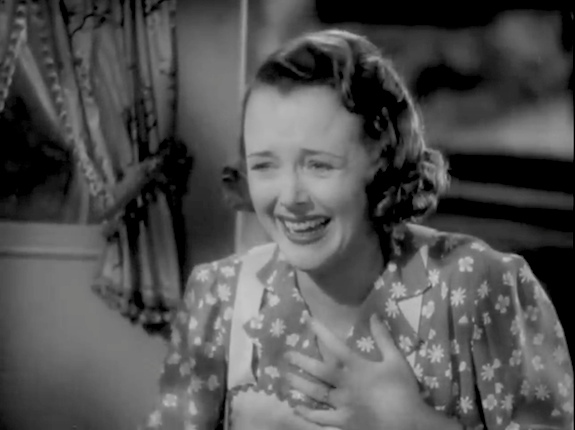
Listen, Darling
Arguably the best of these three films, Listen Darling is also the largest showcase for Astor’s talents. Maybe Dottie Wingate is a co-lead role, given how much the narrative is focused on her, or maybe Astor is so moving and skillful that she’s able to reorient this somewhat misshapen film squarely around her. The nominal lead of Listen, Darling is Pinkie Wingate (Judy Garland), a talented student who’s keenly aware that her widowed mother Dottie (Mary Astor) is still very depressed after the death of Mr. Wingate some unspecified time ago. Pinkie is also terrified to realize Dottie intends to marry school principal Arthur Drubbs (Gene Lockhart), a slightly older man, kind and doting but not exactly charming. It's a proposed union that lacks the passion Dottie had with her husband but that will ensure her family’s financial security. Pinkie desperately plots with her best friend Buzz (Freddie Bartholomew) and successfully tricks her mother into entering the family’s old trailer before driving off with them out of the city.
As you might guess, Dottie isn’t thrilled by this, though she’s caught completely off guard by Pinkie’s tearful, almost self-flagellating explanation for her actions (Garland’s intensity in several scenes is genuinely unnerving). She’s stunned that her daughter has read her so clearly, and is not just moved by what she’s done but excited at spending some quality time with her family on the open road. Astor admirably refuses to sell out Dottie’s feelings for Mr. Drubbs, comfortable and pragmatic though they may be, but it’s startling how much she wakes up from her depressed stupor at the prospect of striking out on the camping trail with her family. But Dottie’s forgiveness doesn’t neutralize her earlier plans. She still intends on going through with her engagement when they return home. Astor’s tact here and throughout the film is remarkable, candidly articulating her way of thinking to this child while illuminating the woman she’s always been and the reckonings this outlook has caused her since Mr. Wingate died. Dottie's description of her husband as the kind of free spirit who didn’t believe in insurance is all we need to empathize with her interest in a safe, secure marriage, something she seemingly longs for without totally believing in.
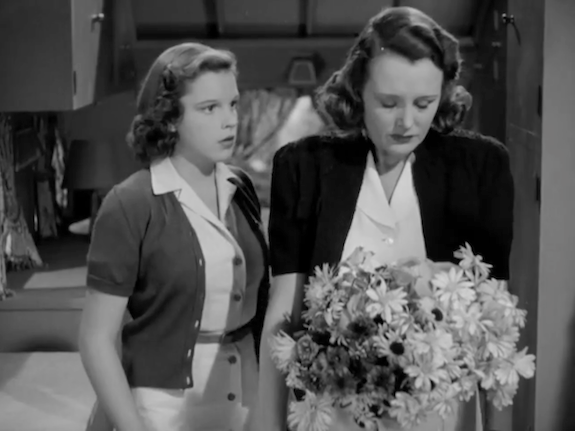
Eventually they run into a couple eligible bachelors, most notably a strapping photographer named Richard (Walter Pidgeon) whose curiosity and free-spirit charisma is very reminiscent of Mr. Wingate. Dottie certainly likes him. Their evening cooking together and talking about their lives sparks with romantic energy. Both actors play off each other at a register of familiarity somewhere between old friends and true-blue soulmates. Astor in particular shines, showing Dottie coming alive in new degrees as they fall for each other. And yet, the scene ends with Dottie realizing Richard resembles her late husband in ways she’s been trying to avoid, and the magic of their love is muffled as Astor roots the emotional climax of Listen, Darling in Dottie’s decision to place her family’s security over her own happiness. Her refusal of this chemistry-filled match is so concise yet emotionally layered it's almost a detriment to her film that Astor doesn't get a similar scene to respond to Richard's last, elaborate attempt to convince her he can be the stalwart provider she desperately needs and the dashing explorer she herself is. Still, this is one tack on a film that benefits immensely from Astor's consummate good judgment, turning an easily-forgettable Judy Garland vehicle into a compelling character study of one woman weighing if her romantic fulfillment is worth keeping her kid's future in limbo.
Astor would go on to make better movies, turning in even greater performances from meatier roles. I'm forever happy she won a competitive Oscar, even if it's baffling she only received one nomination her entire career. But to watch even one Mary Astor performance is to marvel at how many notes she can play in roles that don't always suggest that range is required, and how much she can convey about her characters through what she is and isn't playing. To watch any of these films is to see her in her element; to watch all of them together gives a pretty impressive portfolio of a great and resourceful actress.



Reader Comments (7)
Oh yay! So glad my suggestions helped you find your way to these films!
Of the trio Paradise for Three was the happiest surprise for me. I had expected just a run of the mill B movie but it turned out to be one of those times when all the elements came together so smoothly that it turned the film into something a little more special. Robert Young and Florence Rice are pleasant enough in the leads but it's Mary Astor along with Frank Morgan and Edna May Oliver who put the situations over with their skillful and droll performances.
Listen, Darling is a sweet little film and what I remember most from it is Judy but it's been years since I've seen it. Reading about Mary's performance has given me the itch to watch it again and keep an eye on her. So thanks.
I didn't mind There's Always a Woman nearly as much as you. It was an obvious and paler knockoff of Nick and Nora but I love Joan Blondell and to a lesser degree Melvyn Douglas so I found it painless.
I saw Woman Against Woman on TCM a couple of years ago. It is a routine melodrama but Mary is a lot of fun as a totally conniving bitch making life as much of a hell as possible for poor Herbert Marshall.
I've seen the major portion of Astor's extant films (like many of the stars who were able to make the jump from silence to sound many of her early films have been lost.) but No Time to Marry is one that has proven elusive.
None of these will ever make it into a list of her best films but she makes all three more worthwhile with her participation.
I absolutely loved her in LISTEN, DARLING so I was thrilled to read this writeup. She's doing so much with what would be a flat plot catalyst character in lesser hands.
I watched The Maltese Falcon for the first time last year (I know) and was shocked that Mary Astor was not at all the actress I expected, yet completely made the character work. The actress Keeley Hawes reminds me a lot of her - thank you for adding to my “to do” list!
I’ve never heard of it before but now I really want to watch Listen, Darling.
@joel6 - Love a good suggestion box, especially when everyone has such rewarding suggestions. Glad to read we’re largely in agreement on the movies too - I’d completely agree that Paradise for Three is probably the best of these films, especially once everyone’s in the hotel. Astor really is such a gem. Anyone else wish they could’ve seen that face of hers in something like Birth?
@Nathaniel R - She’s so exquisite, easily the best thing in her movie. Hard to even conceive of Dottie as negligible given how much Astor invests in the role but it could easily have been way less than she gives to it. One shudders to image her being played at the same register as the kids.
@kermit_the_frog - I also saw it for the first time last year! Or was it this year pre-lockdown? Same thing, maybe. She’s incredible in that, and the whole cast is on fire.
@Bradley - It’s sort of a strange movie, but definitely a good time. Especially for Astor.
Any excuse to talk about the wonderful that is Mary Astor I will hop on. I have to admit though I didn't really feel her astonishing me in any of the films. I didn't really enough any of her films I've seen from this year which doesn't help much.
I would've nominated Astor so many more times than her one run in with the academy so I feel okay with the fact I'm not pushed to nominate her in supporting.
I just saw Mary Astor in The Palm Beach Story two days ago, and to think it's the same actress who plays Judy's loving, practical mother (not just here but later in Meet Me In St. Louis), is kind of an acting miracle.
I'm glad she got that Oscar because I think Hollywood loved her, but never used her to her full potential. Maybe it was because her youth was in the silent era?